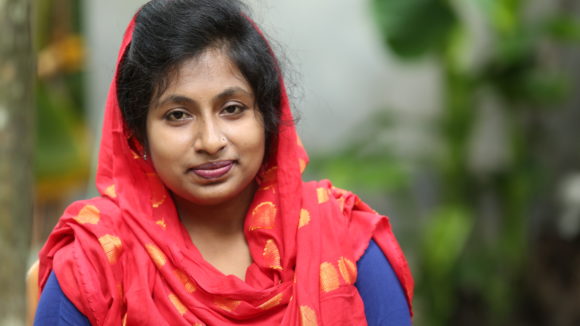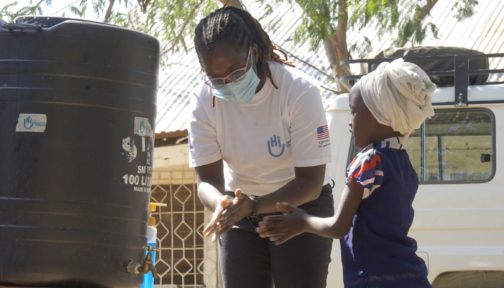Jobseekers with disabilities and COVID-19
When COVID-19 struck, many people with disabilities were already taking part in our formal employment programme. The impact of the pandemic is significant: some have lost their jobs, while others fear the economic impact will reduce their chances of getting work. Here they share their stories.
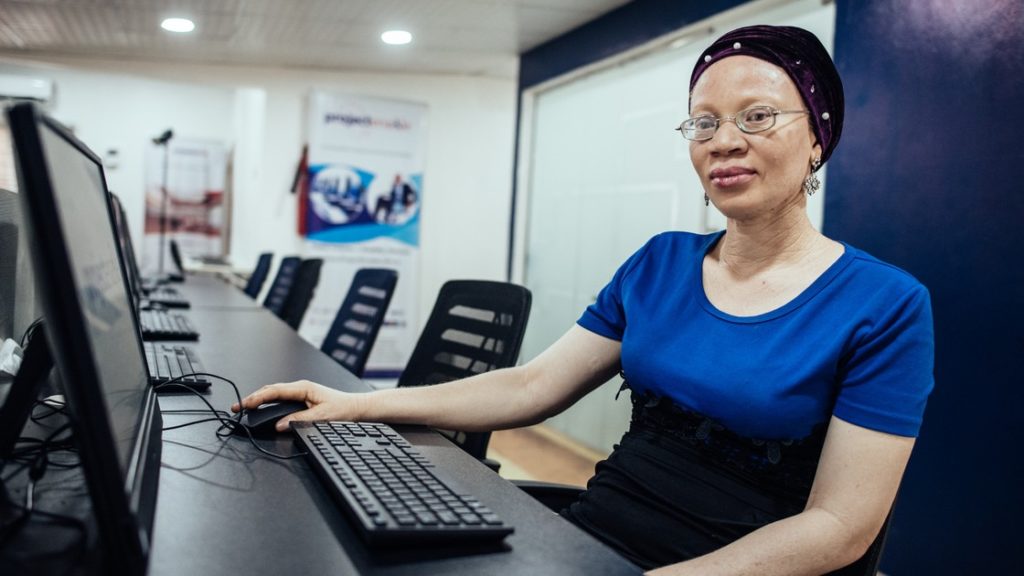
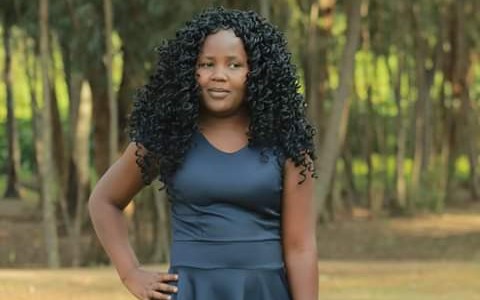
Eva, 23, Kenya
“As a person with a disability, coronavirus has had many impacts on my life.
“Coronavirus has made me not come out of the house. I can’t interact with people because I’m visually impaired so people fear guiding me whenever I want to move from one place to another.
“As a jobseeker, I used to move around various offices to look for job opportunities but now I cannot do so because transport has become very expensive.
“Also it has become very difficult to acquire the basic needs as a lady living with a disability. The government of Kenya is trying to help people but it’s not enough and it’s not reaching everyone with a disability or people with different needs. So it forces us to have challenges in getting food and also paying rent.
“It’s very difficult to cope. Sometimes I blame myself.
“I live alone. I just want to be independent. But I am worried about how long we live like this because life is becoming harder and harder so I am wondering, how long [will I be] left in the house. It is really disturbing me psychologically. If I wasn’t a person with a disability I could look for other jobs that I could do during this coronavirus to earn a living.”
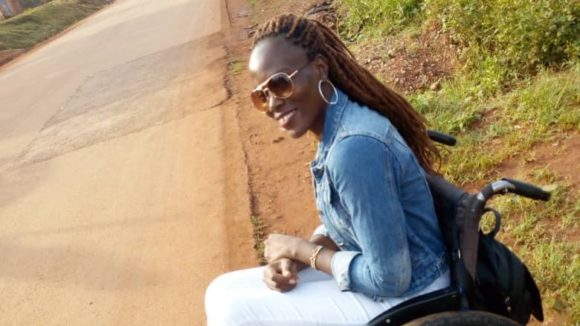
Naome, 29, Uganda
“COVID-19 has affected me so badly. It has affected my health more than every other aspect of my life. Living with spinal cord injury, there is a medication that I have to take twice a day. Everything has been on lockdown so I can’t go to the place where I have to access the medication from, so accessing medical care has been very hard.
“Then physically, I’m into sports. I do wheelchair basketball, but now since the coronavirus came, I can’t access the court because it has become so expensive to travel.
“I think it’s going to impact negatively [on my search for a job] in a very big way. Before the coronavirus, it was hard for a person with a disability to find a job. And now organisations have slashed the number of people that they’re employing. I don’t think it’s going to be easy for persons with disabilities to get a job right now.
“The positive side, in my opinion, would be that over the years we’ve been asking organisations to include people with disability. During COVID-19, everyone was working from home and they could deliver. Meaning a person with a disability can work from home and deliver. So to me, that is a positive thing.”
Listen to a full interview with Naome about life in Uganda during COVID-19.
Alan, 25, Kenya
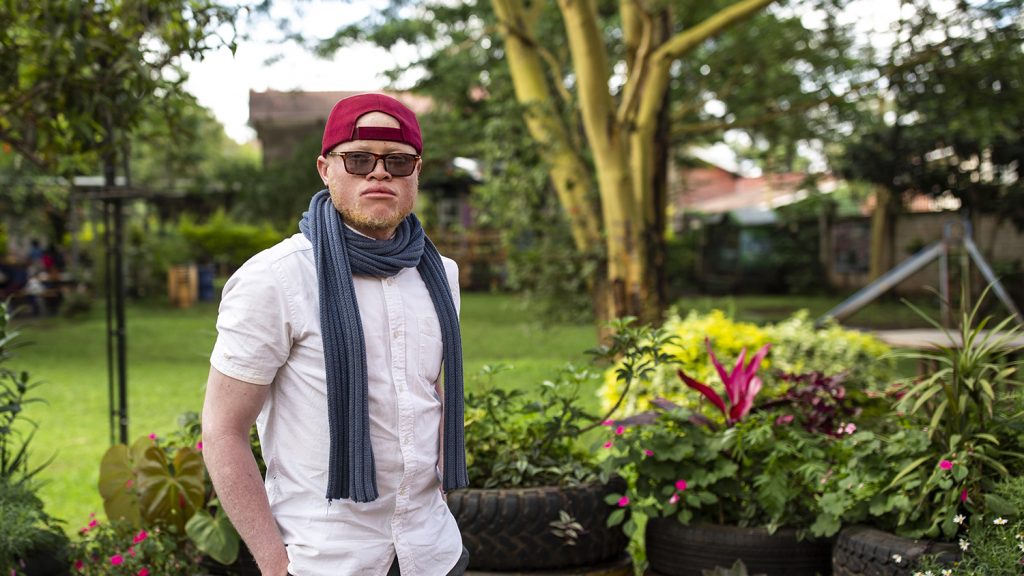
“I work with a company which hires out vehicles to schools to transport children. Since schools are closed, I've been out of employment for a few months. It's an informal sector so there is no clear protection. It's very worrying because I’ve started digging deep into my savings.
“I am a highly optimistic person so I definitely try to look on the positive side of everything. I try to look out for the opportunities even in these current situations. But I must not lie, sometimes they're very low here.
“How are people going to go back to their livelihoods? Unemployment was there even before coronavirus, so what new mechanisms are going to be put into place so that these people at least can afford a daily life?”
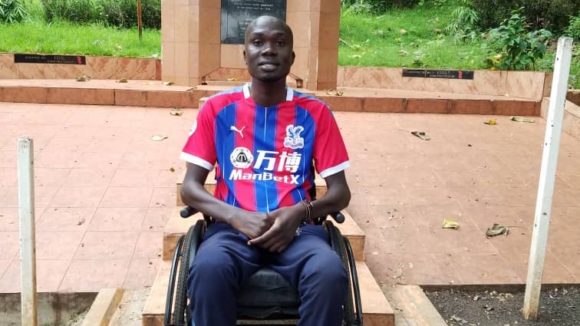
Jairus, 29, Uganda
“During COVID-19, I had an accident and my wheelchair was totally destroyed. How can I leave home? It’s impossible.”
“I was leaving town, heading back home around 7.10pm. It was rush hour because the government had imposed a curfew from 7pm. It’s already dark, people were driving very fast, people were riding motorbikes and running very fast as they’re scared of these policemen imposing the curfew, and I was pushed. I was on the ground and my wheelchair was destroyed. I can’t say for sure it was a car that hit me, but when someone in a wheelchair is in the crowds of people, anything can happen. I was taken to the nearest clinic for help.
“That was in March. We only have one workshop for wheelchairs in Uganda and I couldn’t access it. I tried to enquire if there would be an opportunity of me getting a donation of a wheelchair, and they were saying because of COVID-19, the shipment was suspended. I’ve also had issues because I can’t go and get health gadgets like catheters and assistive devices.
“COVID-19 is really going to make it much more difficult [to get a job]. It’s going to make it quite impossible. Even [people who don’t have disabilities], a very big percentage have lost jobs because of COVID-19. I believe after the virus, what is going to happen is going to be survival. Now, if survival is going to be only for the fittest, where does it leave someone who’s disabled? God knows.”
Samuel, 21, Kenya
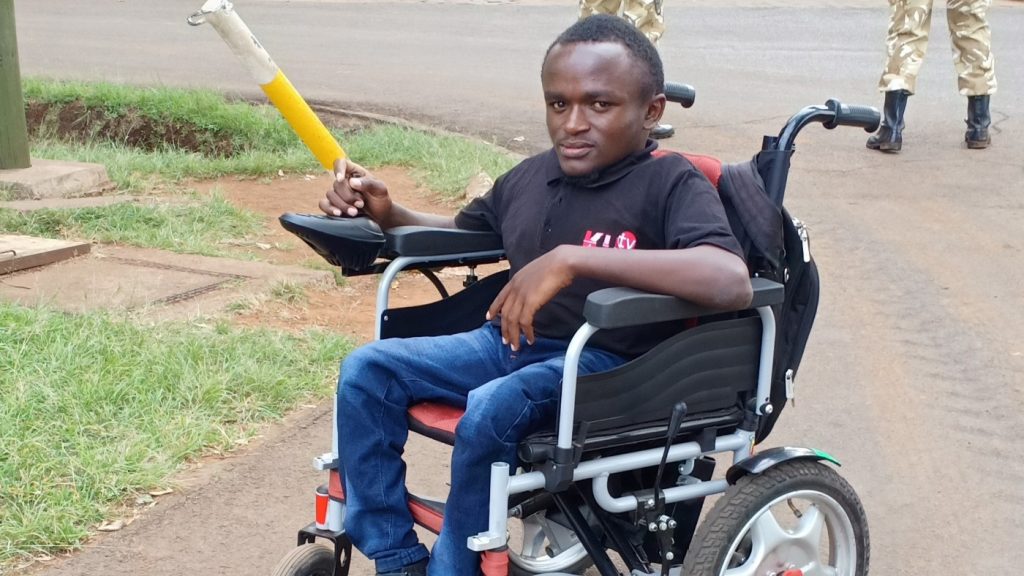
“I have a feeling that coronavirus is a setback for me to come back from. I’m not expecting any employer to contact me because of this pandemic. There’s no hope that any companies will be employing right now when they’re incurring losses.”
Read a more about the impact of COVID-19 on Samuel's search for a job in our In depth piece about inclusive business recovery after the pandemic.
Jhohara, 23, Bangladesh
“When I just started working in my new job as a marketing officer, coronavirus hit us all. I have lost my job. I have been trying a lot to get a job.
“My father, who is a street hawker, used to sell jhalmuri (a popular street snack) in schools and colleges. Since all the schools and colleges are now closed due to coronavirus, my father’s income has stopped completely. At present, he is struggling to run our family and has already become burdened with some heavy loans. We have not got any livelihood support from the government yet.
“We have six members in our family living in a very small house. Therefore, we cannot maintain social distancing with ourselves and are living with the risk of COVID-19 infections all the time. My parents are going outside every day and proper sanitising measures are not possible to take because of financial inability. Now all I want is to get a decent job and contribute to my family.”
